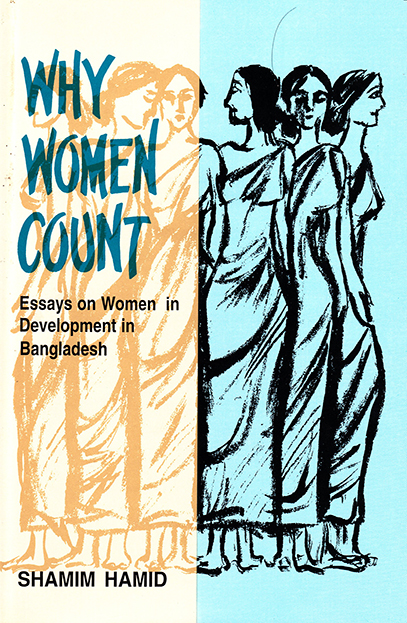- Shop
- Business, Economics and Development
- Why Women Count
Why Women Count
Essays on Women in Development in Bangladesh
https://uplbooks.com/shop/9789840513451-why-women-count-13533 https://uplbooks.com/web/image/product.template/13533/image_1920?unique=b656810
| Language: English |
Tags :
Book Info
One of the most densely populated countries in the world, Bangladesh's 25 years of existence has been peppered with violent political upheavals, natural disasters of gargantuan proportions, and an increase in the absolute number of people living in poverty. Against this background Why Women Count assesses the social and economic situation of women in Bangladesh. The foundation is laid by the first essay 'Non-market Work and the System of National Accounts' which emphasizes the importance of accurately accounting in the GDP the work done by women both in and outside the home. A methodology is presented which evaluates non-market work and estimates the contributions made by men and women to the national income of Bangladesh. The second essay, Trends in women and development, builds on this foundation and examines the situation of women in an economic, social and cultural context. It traces the growth of interest in women's issues and highlights the trends in attempts made by the state and other agencies to promote the development of women in the country. The third and final essay, 'Women and Empowerment in Bangladesh', focuses on the complexity of empowerment as an alternate development strategy for women. A review of the concepts and interpretations of empowerment is followed by discussions on the problems faced and successes achieved in operationalizing the practical and strategic issues of this development tool. It is the epilogue however that succinctly captures the essence of the whole book.

Shamim Hamid
Shamim Hamid is a Research Fellow at the Bangladesh Institute of Development Studies. She holds a Masters in Public Administration from the Kennedy School of Government, Harvard University, Cambridge, Massachusetts and was the first woman in South Asia to be selected as a Mason Fellow in the same Institute. Her research interests include Women and Development, national income accounts, microcredit, poverty, and natural resources. She has worked as a consultant to FAO, WFP, IFAD, ADB, the World Bank and the Government of Bangladesh. Her hobby is writing short stories.



